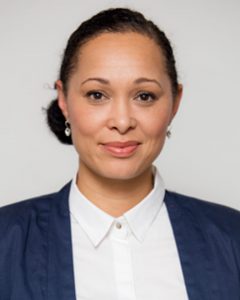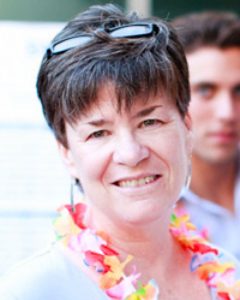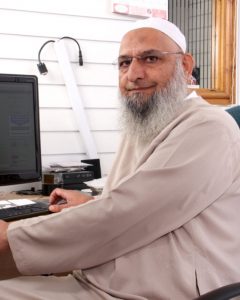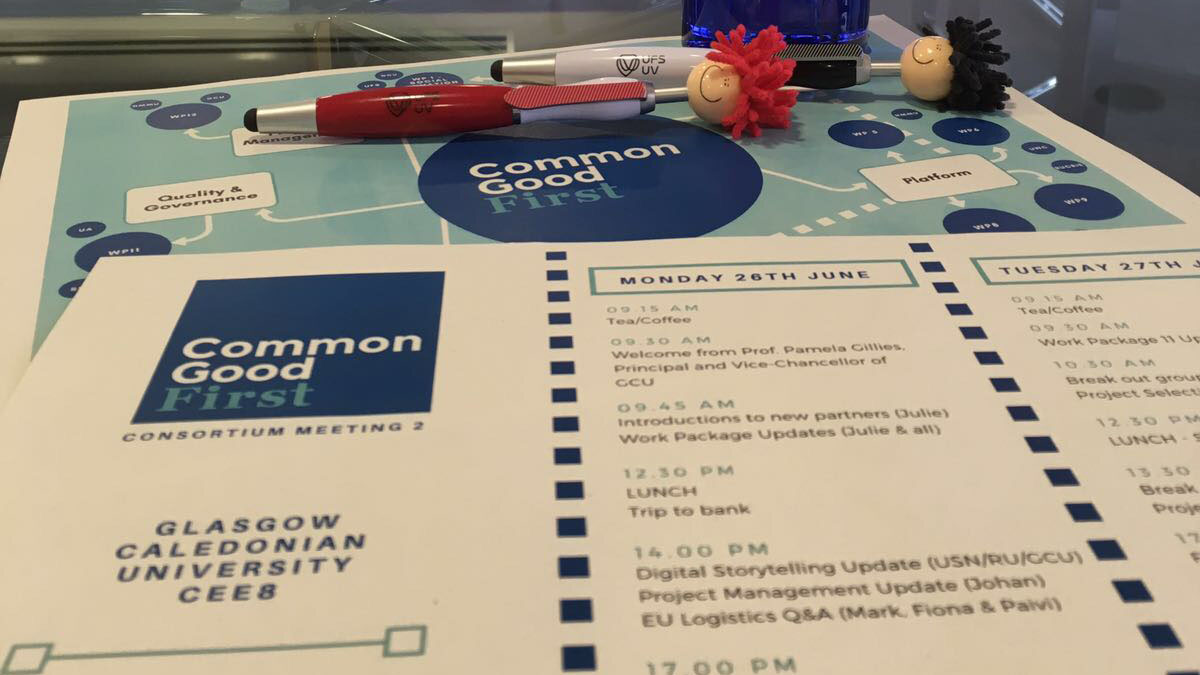Advisory Committee on board
October 16, 2017
Common Good First’s Advisory and Evaluation committee (AEC) is now confirmed. Covering both the global North and South, the seven members have reputations, or expertise, in community technology, digital storytelling, social innovation projects or community activism. The AEC will be led by University of Alicante’s Cristina Bean and Social Innovation Exchange’s Jordan Junge. They will co-ordinate virtual meetings with the group over the course of the project.
Elizabeth McKenna
Elizabeth McKenna is the Director of Glasgow Social Enterprise Network (GSEN), Scotland’s largest local social enterprise network, and a membership organisation with a vision for Glasgow to be a leading city in social enterprise creation, development and support. Elizabeth’s career spans a number of charitable organisations including Scottish Drugs Forum, SAMH and Social Care Ideas Factory where she has picked up a strong belief in collaboration, networking and joining the dots from local need to policy development.
GSEN membership includes social enterprises of all sizes at all stages of their development, across a wide range of trading activities. GSEN is members led and provides a range of services including opportunities for peer to peer support, partnerships and collaboration, business opportunities and information and signposting, ensuring members have as much access as possible to create a thriving social enterprise environment.
Ellen Fischat
 Ellen Fischat is the Managing Director for the Silicon Cape Initiative. She holds an Honour’s Degree in Social Work and Community Development. She returned to South Africa, her place of birth, after a 23 year stint in Amsterdam. Upon her return to South Africa, she ran a Boy’s Home for two years in Port Elizabeth and set up various community initiatives. In an attempt to grow the sustainability of the children’s home and community initiatives, Ellen reached out to her friends and family in the Netherlands. This led to the set-up of an international student programme and becoming the Country Co-ordinator for a Dutch based International Volunteer Programme. And all of this was made possible through the use of technology.
Ellen Fischat is the Managing Director for the Silicon Cape Initiative. She holds an Honour’s Degree in Social Work and Community Development. She returned to South Africa, her place of birth, after a 23 year stint in Amsterdam. Upon her return to South Africa, she ran a Boy’s Home for two years in Port Elizabeth and set up various community initiatives. In an attempt to grow the sustainability of the children’s home and community initiatives, Ellen reached out to her friends and family in the Netherlands. This led to the set-up of an international student programme and becoming the Country Co-ordinator for a Dutch based International Volunteer Programme. And all of this was made possible through the use of technology.
Before joining Silicon Cape, Ellen co-owned an HR Boutique Consultancy that focused on People Development and Strategy Design, headed up the Enterprise Development Unit for the SEDA NMB ICT Incubator 2011-2015, before setting up the Propella Business Incubator on behalf of NMU in Port Elizabeth- 2015-2017.
Ellen has extensive experience in small business development, with a focus on social enterprises and technology. Ellen is involved in the mentorship of technology start-ups and volunteers in various community outreach programmes that focus on personal development, digital literacy and increasing employability of marginalized young women.
Mandy Bratton
 Dr. Mandy Bratton is the Executive Director of Global TIES – Teams in Engineering Service and a Lecturer in the Jacobs School of Engineering at the University of California, San Diego. She earned a Ph.D. in Counseling Psychology from the University of Texas at Austin in 1996. Prior to joining the Jacobs School, Dr. Bratton served as a senior faculty member in Psychology and Human Development and Interim Associate Dean at Prescott College for the Liberal Arts, the Environment, and Social Justice.
Dr. Mandy Bratton is the Executive Director of Global TIES – Teams in Engineering Service and a Lecturer in the Jacobs School of Engineering at the University of California, San Diego. She earned a Ph.D. in Counseling Psychology from the University of Texas at Austin in 1996. Prior to joining the Jacobs School, Dr. Bratton served as a senior faculty member in Psychology and Human Development and Interim Associate Dean at Prescott College for the Liberal Arts, the Environment, and Social Justice.
Her scholarly interests include international education and development, the impact of global and community engagement on students and the organizations and communities with which they work, and gender and diversity issues in academic and professional settings. Dr. Bratton is the Principal Investigator on SISTERS: Sustaining Interest in Science, Technology, Engineering, and Research in Society, a three-year, NSF-funded intervention project that aims to ignite and sustain the STEM-related interests of 5th and 6th grade girls from under-served communities.
Rommel Roberts
 Rommel Roberts is a social entrepreneur with a very long history in both human rights (a key activist during the anti-apartheid campaign nationally and internationally working with Desmond Tutu) and various forms of urban and rural socio-economic development. He has been directing and supporting several NGOs alongside his business consultancy. In doing so, he has promoted IT and agri-development in rural and peri-urban communities. He has gained personal experience in various forms of small business development including inter alia market gardens, chicken production, pottery, flower production, housing construction, carpentry among a number of other industries. He was also responsible for the development of a National Zero Hunger Business plan.
Rommel Roberts is a social entrepreneur with a very long history in both human rights (a key activist during the anti-apartheid campaign nationally and internationally working with Desmond Tutu) and various forms of urban and rural socio-economic development. He has been directing and supporting several NGOs alongside his business consultancy. In doing so, he has promoted IT and agri-development in rural and peri-urban communities. He has gained personal experience in various forms of small business development including inter alia market gardens, chicken production, pottery, flower production, housing construction, carpentry among a number of other industries. He was also responsible for the development of a National Zero Hunger Business plan.
Rommel is also a conflict resolution expert with many years of successful conflict resolution examples including the management of the North West Mmbatho conflict zone during the first national elections. He is currently consulting in this field in urban areas in the realm of community conflicts.
Rommel is constantly searching for solutions to various community needs and has broadened this to take in the whole of Africa starting with a few countries where there are direct connections. His lateral thinking ability helps him identify networks and opportunities toward practical facilitation of project realities.
Ahmed Ismael Smiley
 Ahmed Ismael Smiley is a community ICT activist, social entrepreneur; change maker and digital divide enabler with over 40 years of experience in ICT and community activism.
Ahmed Ismael Smiley is a community ICT activist, social entrepreneur; change maker and digital divide enabler with over 40 years of experience in ICT and community activism.
With a vision to empower, educate and e-connect communities, and make computer literacy and access to an email address available to everyone, Mr Ahmed Ismael-Smiley, opened the first Siyafunda Community Technology Centre in Palm Ridge in 2006. The core values of sustainability, affordability and access, remain key project drivers. The first centre, a Community Public Private Partnership, established the model for the now more than 150 community centres nationally which have helped unlock people’s potential for creativity and productivity. Siyafundactc centres have played a significant role in driving innovation and revitalising communities.
The centre’s objective is to offer people access to computers, the internet and other digital technologies which enable them to gather information, create, learn and communicate with others while they develop essential digital skills. The focus is on the use of digital technologies to support community, economic, educational and social development – reducing isolation, bridging the digital divide, promoting health issues, creating economic opportunities and reaching out to youth.
Dr. Swati Banerjee
 Dr. Swati Banerjee is Associate Professor at the Centre for Livelihoods and Social Innovation, School of Social Work, Tata Institute of Social Sciences, Mumbai, India and Co-ordinator, Right Livelihood College (RLC), TISS, the first RLC in the Asia Pacific Region. She has been a post-doctoral fellow at Lund University, Sweden and visiting faculty to many Universities across the world. She is also a recipient of several fellowships from national and international organizations including German Academic Exchange Service (DAAD), Indian Council of Social Science Research (ICSSR), Ford Foundation, Erasmus Mundus and Erasmus Plus (funded by European Commission).
Dr. Swati Banerjee is Associate Professor at the Centre for Livelihoods and Social Innovation, School of Social Work, Tata Institute of Social Sciences, Mumbai, India and Co-ordinator, Right Livelihood College (RLC), TISS, the first RLC in the Asia Pacific Region. She has been a post-doctoral fellow at Lund University, Sweden and visiting faculty to many Universities across the world. She is also a recipient of several fellowships from national and international organizations including German Academic Exchange Service (DAAD), Indian Council of Social Science Research (ICSSR), Ford Foundation, Erasmus Mundus and Erasmus Plus (funded by European Commission).
She has been heavily involved in research studies focusing on People centred Social Innovation, Human Centred Design Thinking, Entrepreneurship Development, Collectivization and Empowerment of Women, Livelihoods of Marginalized Communities, and Participatory Methodologies and Pedagogies. She is also involved in global discussions on social innovation, poverty reduction and achievement of sustainable development goals (SDGs) in UNESCAP Asia Pacific regional forums. Simultaneously, she is part of several grassroots innovation initiatives and processes of participatory development in India.
Will Tyler-Greig
 Will is Head of Social Enterprise, Social Innovation and Social Investment at the Scottish Government. For more than a decade, the Scottish Government has worked collaboratively with the social enterprise community to establish a holistic ‘eco-system of support’, including incubators, accelerators, specialist business support and affordable social finance. Scotland’s second national Social Enterprise Census found 5,600 social enterprises operating across Scotland, contributing £2 billion to the nation’s economy. Through ‘co-production’, a progressive approach to designing public policy, Will and his team worked with Scotland’s social enterprise sector to design a new ten-year strategy to further strengthen this innovative movement. In April 2017, the Scottish Government announced 92 specific actions to realise our shared ambitions, including doubling the amount of seed capital available and putting social enterprise at the heart of Scotland’s schools system.
Will is Head of Social Enterprise, Social Innovation and Social Investment at the Scottish Government. For more than a decade, the Scottish Government has worked collaboratively with the social enterprise community to establish a holistic ‘eco-system of support’, including incubators, accelerators, specialist business support and affordable social finance. Scotland’s second national Social Enterprise Census found 5,600 social enterprises operating across Scotland, contributing £2 billion to the nation’s economy. Through ‘co-production’, a progressive approach to designing public policy, Will and his team worked with Scotland’s social enterprise sector to design a new ten-year strategy to further strengthen this innovative movement. In April 2017, the Scottish Government announced 92 specific actions to realise our shared ambitions, including doubling the amount of seed capital available and putting social enterprise at the heart of Scotland’s schools system.
Will is also an advocate for sustainable transport and its benefits. He is a keen cyclist and walker, and is serving as a director for the UK charity, Living Streets.

